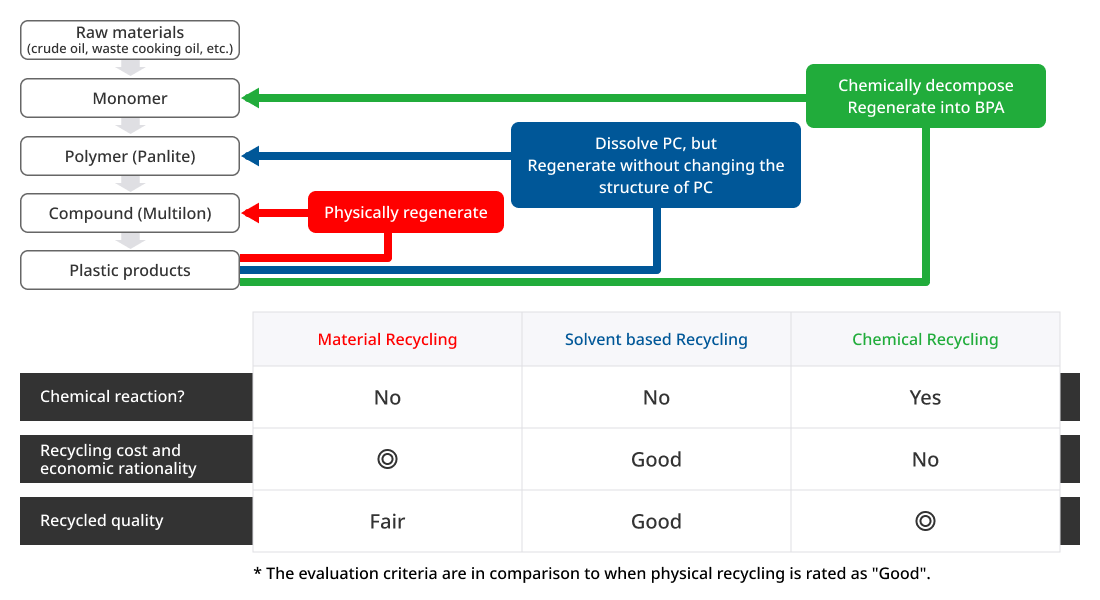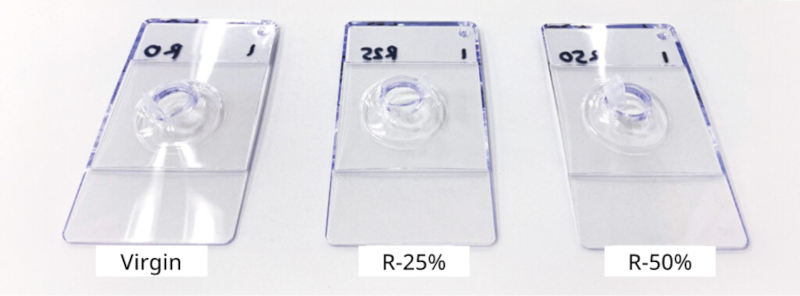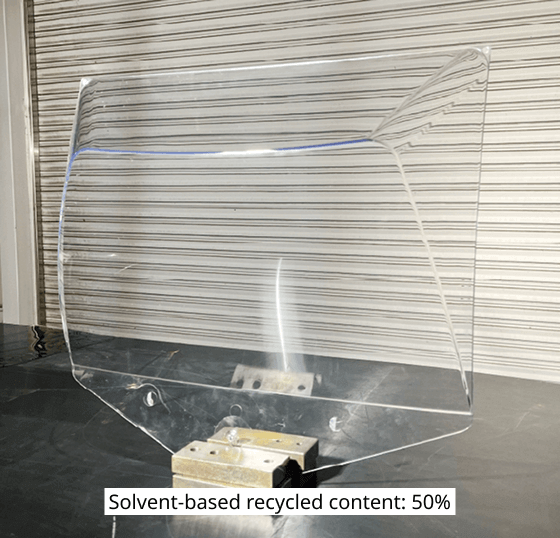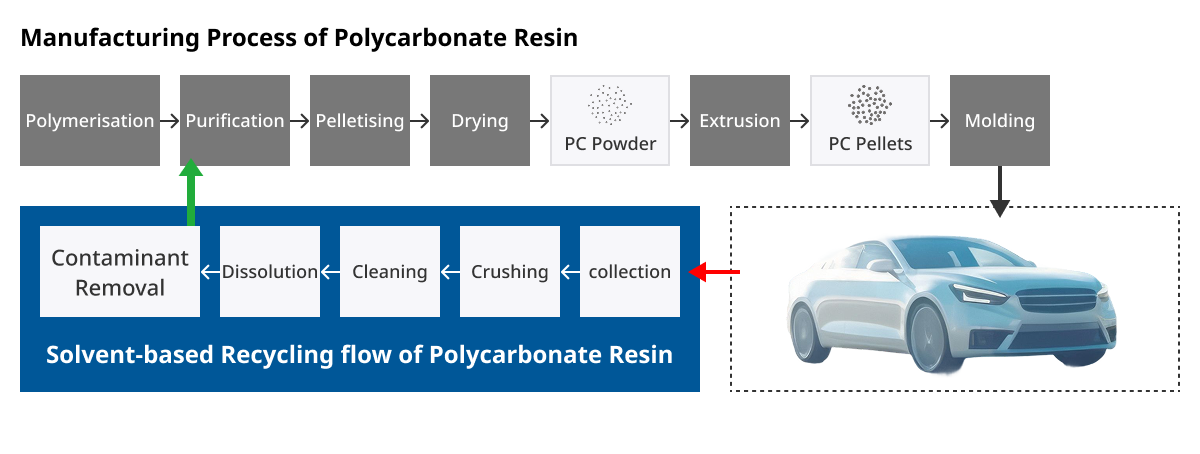Solvent-based Recycling
Teijin is developing a solvent-based recycling process as a new technology for the recycling of polycarbonate resin.
This process enables the regeneration of polymers to virgin-comparable quality by dissolving and purifying them with solvents, even from post-consumer recycled (PCR) materials that contain impurities, which have been difficult to handle with conventional mechanical recycling.
Compared to chemical recycling, Teijin’s solvent-based recycling process not only ensures economic feasibility, but also contributes to reducing CO₂ emissions. It is a technology that achieves both reduction of environmental impact and resource circulation, and through this development, Teijin is promoting the advancement of mechanical recycling toward the realization of a sustainable society.
Key Features of the Solvent-based Recycling Process

ELV-compliant grade for transparent automotive applications
This is an ELV-compliant polycarbonate resin for transparent automotive applications, developed using a solvent-based recycling process that utilizes market-collected materials derived from automotive headlamps.
Even with a high ratio of ELV (End-of-Life Vehicle) content, it is capable of maintaining virgin-comparable quality.
Product Overview
- Raw material: r-PC made from market-collected materials derived from automotive headlamps (Recycled content ratio※: 0–50%)
- Base composition: Weather-resistant grade for headlamp applications
- ※Recycling ratio

- Surface appearance of molded plate

- Appearance of surface impact test specimen

- Appearance of large molded part

Production Flow of Polycarbonate Resin and the Solvent-based Recycling Process


